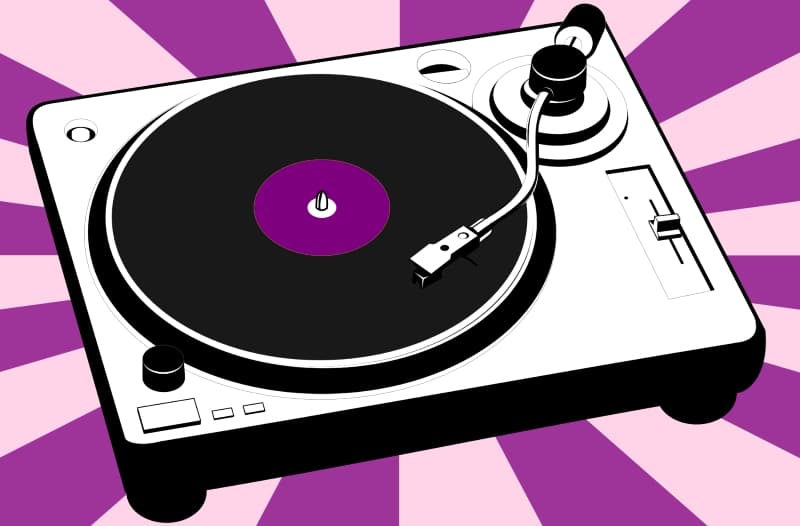An Introduction To The PPL Licence

The PPL company is tasked with the duty of providing licences and collecting licencing fees from individuals and business premises that play music in public. This means if you're a shop, studio, restaurant or other place where you play recorded music in public, you'll need a PPL or PRS to be legal!
The term “In public” means performing or playing music from radio, television, CDs or from the internet to an audience outside the domestic circle. Failure to obtain a licence may lead to infringement of the copyright law.
What Is Copyright Law?
UK copyright law permits any person to publicly play copyrighted music but before they are legally allowed to do so, consent from the ppl company is required. There are however exceptional cases by law, that would not require such licences as indicated in the Copyright, Designs and Patents Act 1988 (as amended) or if the music is under PRS policy cover and ppl has decided under its own discretion not to charge a licence fee. It is advisable that an assumption is not made on not paying the licence fee unless the PLL Company confirms in a formal manner.
The ppl licence was initiated by UK copyright owners and given legal entitlement to grant licences. Artists, after recording, legally transfer their rights to the ppl licence Company to exercise them on their behalf. As a result, ppl becomes the copyright owner and therefor authorises public performances on behalf of its members. ppl stands for Phonographic Performance Ltd.
The Licence & Learning Institutions
A ppl licence is issued to permit both public performance and live performances of music. Music used in educational institutions, lecture halls in universities and colleges for purposes of learning are excluded. The licence covers the playing of recorded music on behalf of the artist in public. If music is played in public to an audience (it could even be one person) in an institution, then both a ppl licence and PRS may be needed. This is even if the music is owned by one of the students, staff member in the institution or by the institution itself. Students can however listen to this music on headphones or privately in the institution without the need for a ppl licence.
Workplaces, Shops, Restaurants
A ppl licence will be required by any premises that plays recorded music, whether the music is from the TV, radio or a CD. Employees and other people within these places can still listen to music from personal portable devices without the necessity of a ppl licence as long as the sound is strictly audible to the individual with the device, and listening through headphones. If the music is audible to other members then ppl licence will be necessary.
Offices are also considered as public places and therefore also need ppl licence cover. An institution or office may decide to adopt a universal usage of headphones to avoid ppl licence fee as opposed to banning listening to music.
In Summary
In summary, it is well advisable to familiarise yourself with the terms and conditions and law that govern listening and playing music in a public place. The ppl company helps in both the collection of the fee as well as the distribution of licences on behalf of performers or recording companies. If the premises only hosts live music performances and not recorded then a ppl licence is not required.
Useful Links
Official site PPL Licence - www.ppluk.com
Government Info Site - www.gov.uk/licence-to-play-background-music-ppl
You Might Like
Do I Need A PPL Licence?
Have you heard of PPL or PRS Music Licences? Do you know if you need to have one? Read our quick guide now.What Happens To PPL Licence Fees?
Find out what happens to PPl Licence fees now with our simple guide. It is worth buying - especially as you will be illegal with out.What Is Public Liability Insurance?
Want to know what public liability insurance is? Do you need it and how do you find the right insurance cover for your needs. Look online for a range of insurers to compare the details.A Guide To Music Downloads
If you want to download music from a range of sites including Napster - legitimate ones make you pay monthly. However, we figured a simple guide on this would be very welcomeThe Problem With Downloading Music
Streaming or downloading your music? Did you know there are problems and issues over rights with some downloaded music. Why not check our quick guide to find out more.
Useful Websites
- CNET TV
Come to CNETTV.co.uk for free online film & TV, music, gaming & technology videos. Watch exclusive free footage of upcoming game releases. - Online Training Courses
Course Feeder provides a range of online courses including IT, Fitness, Beauty, Accounting, Catering and Music. In fact a wide range of free and distance learning courses to take you to the next level - Amelia Young
A professional piano and cello teacher. Amelia is a former student of Jacqueline du Pré and has degrees in music from Oxford University and the Royal College of Music, London. - The Internet Music Shop
One of the largest publishers of sheet music, music books, new media and music software - Eminent Music - Music for All
Details of the best of British amateur music making and gives a preview of the music produced - Black Cat Music
In association with Wenger, Wenger Vision, music facility equipment, music stands, music education, schools, music events, acoustic environments, shelves, choral risers and more - Add Your Website Here